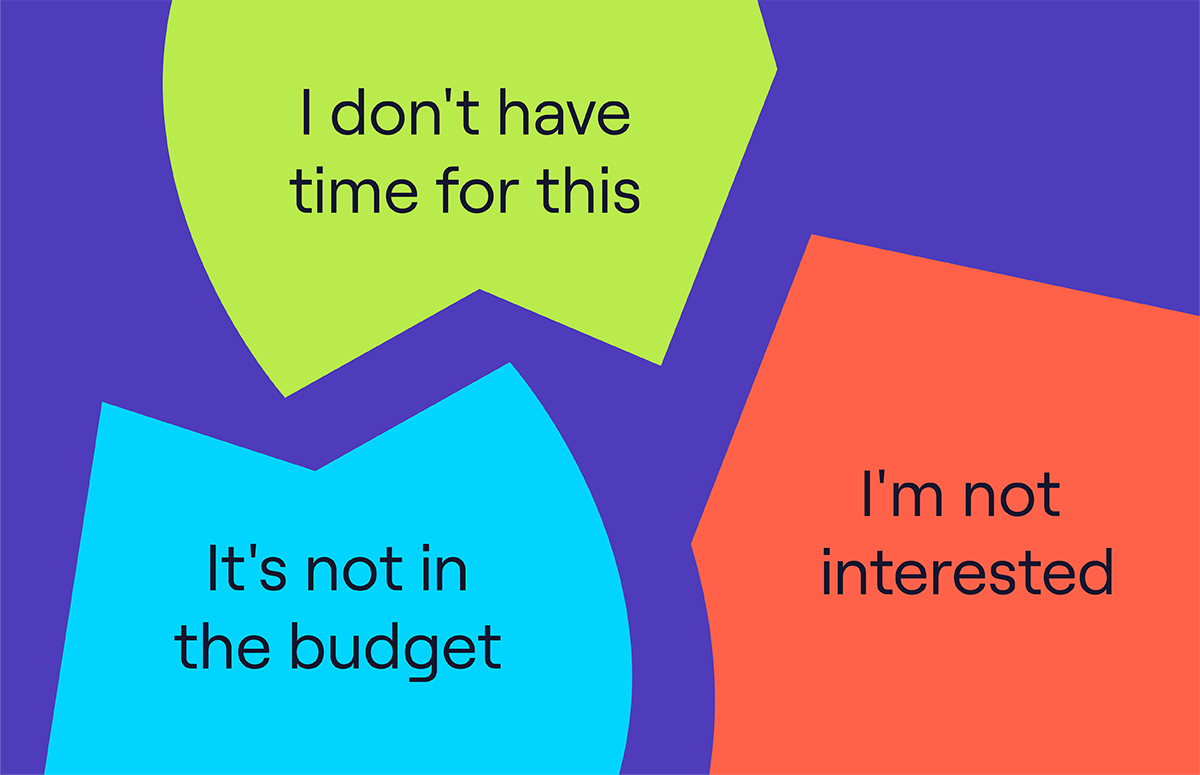The Ultimate Guide to Cold Calling in the UK
Cold calling can be a daunting task, especially when navigating the unique cultural and professional landscapes of different regions.
In this blog, we’ll explore the specifics of cold calling in the UK, drawing on the experiences of Rico Luis, a Cognism Senior Enterprise SDR who has successfully navigated the UK market.
Whether you’re new to the game or looking to refine your approach, this guide will provide valuable insights into how to effectively engage UK prospects.
The UK cold calling landscape
When it comes to cold calling in the UK, the general sentiment is relatively positive. Most people in the B2B space expect cold calls and are open to them, especially if the caller is concise and to the point.
However, as there is in any region, personal preference can vary. For example:
Sales professionals tend to be more open to cold calls because they understand the process. That said, not everyone will be warm to the idea of a cold call.
Rico said:
“Generally, most people are receptive to cold calls, but I think it does depend on job title. It’s not always a warm reply—some people just don’t like cold calls.”
“If you’re direct and get to the core of your message quickly (e.g. you’re not wasting their time!) people are happy to at least listen to what you’ve got to say. So I think the cold calling market here is good.”
While the SaaS and software industries are generally more receptive to cold calls due to their familiarity with outbound sales processes, other industries like pharmaceuticals or finance may be less welcoming.
This is often because these industries don’t have a strong internal cold-calling culture. The key is to understand the industry you’re targeting and tailor your approach accordingly.
Rico explained:
"If the company is doing outbound and cold calling themselves, they’re more likely to be receptive. But if it’s not part of their culture, it can be a tougher sell."
Characteristics of UK prospects
UK prospects can be a mixed bag. Rico estimates that he experiences around 10% of calls ending with the prospect hanging up, while others are more polite or even engage in light banter.
The key is to match the prospect’s energy. If they’re direct, be direct. If they’re open to humour, feel free to mirror that.
However, always start with value, and then, as you sense out your prospect, gradually introduce more personality and relationship-building into the conversation.
Rico said:
“You get some people who are really stubborn and won’t give you an answer, but then you also get some really friendly people.
“Today, for example, I had a call with someone who was really nice off the bat. It’s about reading that person’s energy the best you can to adjust your approach.”
“A lot of people in the UK get cold calls, so you have to be conscious of their time. If there’s interest and the conversation flows, then you can take the time to bond with them a bit and show more of your personality. But start with value first.”
British humour and politeness are unique cultural traits that can play a significant role in cold calling. Being polite is crucial, especially if the prospect is busy or initially uninterested. However, there’s a fine line—being too polite can make you seem passive, which may lead to dismissal.
A touch of humour can also help you stand out, as long as it’s relevant and not overdone.
Rico said:
“British humour is definitely a thing. We’ve got good banter levels, and it can help you stand out.”
“But you have to be careful—you can’t be swearing or be rude. But equally, if you’re too polite, someone might just dismiss you straight away. There’s a balance. You need to be polite but also assertive.”
British politeness is also important when it comes to objection handling. It’s important to handle objections gracefully, as Rico told us:
“In the UK, people love to say, ‘I’m busy, send me an email.’ You need to know your limits—don’t keep pushing. Respect their answer, but also try to understand why they’re saying no. If someone says they’re not interested, you can ask why but don’t overdo it. Respect their time.”
Common objections and how to handle them
When cold calling in the UK, you’re bound to encounter objections.
Here are some of the most common sales objections you’re likely to face, and how Rico would respond to them:
“I’m busy, send me an email.”
“I usually say, ‘I’d be happy to send you an email if you prefer. Alternatively, I can take 30 seconds to share why I’m calling just now, and if it’s not relevant for you, I won’t bother you again?’ Most people are open to that because they don’t want you to keep calling them.”
“Not interested.”
In this scenario, what is most useful is to find out why they think they’re not interested. Is it a brush-off because they’re busy, or are they already working with a competitor?
“I might ask something like, ‘can I ask why you’re not interested?’.”
“Other times, if they object before I’ve even had a chance to explain, I will say, ‘how do you know you’re not interested? You don’t even know what I’m offering yet.’ Sometimes, that opens up the conversation again.”
“Budget constraints.”
Again, this is an opportunity to find out more information.
Sometimes, people will use budgeting as an excuse to get off the phone. It’s worthwhile trying to find out if there is genuine interest in the product but they’re held back by legitimate budget issues or if it’s an excuse.
“I’ll say, ‘I understand budgets are tight, but even a small improvement could be worth the investment. Let’s talk about the ROI.’"
Want to find out how other sales experts are responding to common objections? Check out our Objection Response Generator!
The importance of multi-channel outreach
In the UK, multi-channel outreach is crucial.
Rico and the SDR team at Cognism always send a LinkedIn connection request before a cold call; this can help build familiarity and credibility. And then they follow up with an email to reinforce the message.
One of the reasons this tends to work is because it gives the sense that the rep is specifically trying to reach that one prospect, rather than just having a list of numbers in front of them that they need to hit.
Connecting on their personal LinkedIn profile and following up with an email after all point towards deliberate outreach versus spray and pray.
Voicemails, on the other hand, are less common in the UK. They could provide a place for reps to stand out in the UK, however Rico would suggest you proceed with caution. If you leave a generic voicemail which sounds like any other sales pitch, you run the risk of prospects blocking your number.
Rico explained:
“It’s much better for me to explain to someone how we can help them on the phone, and handle their objections live.”
“If I leave a voicemail and someone has an objection, they’ll block my number and I won’t have the opportunity to share why it’s valuable to work together.”
Cold call practices that work in the UK
Research is important, but equally, it doesn’t make sense to spend 30 mins researching one prospect that then doesn’t answer the phone. That leads to a lot of wasted time.
Considering that the average cold call lasts around 93 seconds, it’s essential to balance preparation with efficiency to maximize outreach.
Rico suggested:
"I spend about 15 minutes researching an account before I call."
"I look at who their competitors are, what market they’re in, and if we’ve had any previous communication. That’s enough to get started."
"And I use that for any of the stakeholders within the account that I call. You don’t want to spend too much time on someone who might not pick up the phone."
The important thing here is that you’re calling people that you believe your product can help. And you share why you think your product can help them specifically. The outreach should feel tailored and deliberate.
Due to the volume of cold calling in the UK, prospects are very wary of salespeople ‘pulling the wool over their eyes’, so anything too generic or pushy will raise alarm bells.
Rico added:
“I don’t go into every call looking to book a meeting, because you can burn through your cold call list super quickly if you do that.”
“Instead, my aim is to get something—whether it’s a referral or just some extra information. Even if they say no to the meeting, you can still get something valuable out of the conversation.”
UK prospects appreciate a mix of directness and relationship-building, which often depends on prospects’ seniority in the business.
For decision-makers, be direct and get to the point quickly. For lower-level contacts, you can afford to be a bit more conversational.
Rico explained:
“You want to have a bit more of a relationship with the mid-level managers of a business because they’re going to be the ones who champion you to senior leadership.”
“But for decision-makers, you need to be direct. They don’t have time for small talk and you’re more likely to annoy them.”
“If you email senior leadership, make sure your messaging is clear and relevant. People don’t want to read a long message—they just want to know if you can help them or not."
Using AI and automation in UK outbound
AI sales tools can be valuable for gathering information and automating repetitive tasks.
However, avoid using AI for mass, generic outreach, especially with key decision-makers in the UK. Personalised, human-driven communication is still the most effective way to engage UK prospects.
Rico said:
“I use AI to gather information, but I don’t use it for mass outreach. For ICs, I’ll use sequences, but for decision-makers, I prefer to personalise my messages. If you send a generic message to a key person, it doesn’t look good.”
“AI is great for saving time, but you still need to put your own spin on things. Don’t rely on it too much—personalisation is key.”
Top tips for new SDRs in the UK
Are you an SDR new to operating in the UK or leading an SDR team who are expanding into the UK?
Here are Rico’s top tips for prospecting in the UK:
Be strategic
“When I started, I didn’t have a strategy and it was hard. Once I started being more strategic, people were more receptive because it was more thoughtful and personalised.”
“Know who you’re speaking to, why you’re speaking to them and have some messaging in mind.”
Leverage multi-channel outreach
“Not many people are going to call you back if they don’t pick up your call, so make sure your messaging is creative and multi-channel.”
“Use LinkedIn, email, and phone calls to stand out.”
Focus on value, not just meetings
“Don’t be tied to the outcome of every call being a meeting. Sometimes, you can get valuable information or a referral that helps you in the long run.”
Adapt to the prospect’s energy
“Match their tone and demeanour. If they’re direct, be direct. If they’re open to humour, use it.”
Don’t be afraid to follow up
“Use information from previous conversations to re-engage prospects. Sometimes, they’ll say no at first, but if you come back with new information, they might change their mind.”
UK cold calling: The last word
Cold calling in the UK requires a blend of professionalism, adaptability, and cultural awareness. By understanding the unique characteristics of UK prospects and tailoring your approach accordingly, you can increase your chances of success.
Remember, the key to effective cold calling is to offer value, build rapport, and always be prepared to adapt to the prospect’s needs and preferences.
For more insights into cold calling in different regions, check out our blogs on SDR in France and SDR in DACH.


